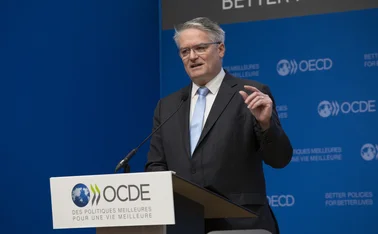
Woodford shows finite horizons matter when modelling
Removing rational expectations can change key economic results, says Michael Woodford

Removing the “plainly heroic” assumption that all actors have perfect foresight can change the results of key economic models, according to Columbia University professor Michael Woodford.
In a recent NBER working paper, Woodford argues that while rational expectations are often assumed to be a “useful idealisation”, their inclusion in dynamic stochastic general equilibrium models can lead to counterintuitive results.
One such result is the “Neo-Fisherian” idea that higher interest rates can
Only users who have a paid subscription or are part of a corporate subscription are able to print or copy content.
To access these options, along with all other subscription benefits, please contact info@centralbanking.com or view our subscription options here: http://subscriptions.centralbanking.com/subscribe
You are currently unable to print this content. Please contact info@centralbanking.com to find out more.
You are currently unable to copy this content. Please contact info@centralbanking.com to find out more.
Copyright Infopro Digital Limited. All rights reserved.
As outlined in our terms and conditions, https://www.infopro-digital.com/terms-and-conditions/subscriptions/ (point 2.4), printing is limited to a single copy.
If you would like to purchase additional rights please email info@centralbanking.com
Copyright Infopro Digital Limited. All rights reserved.
You may share this content using our article tools. As outlined in our terms and conditions, https://www.infopro-digital.com/terms-and-conditions/subscriptions/ (clause 2.4), an Authorised User may only make one copy of the materials for their own personal use. You must also comply with the restrictions in clause 2.5.
If you would like to purchase additional rights please email info@centralbanking.com







